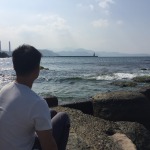巴西3地聯邦警方上月憑著313張拘票,聯合拘提涉嫌盜採原始保留地黃金、寶石的嫌疑犯,企業高層、公務人員、礦商、珠寶商和飛行員都有涉入。
 |
| 巴西Yanomami保留區首領Davi Kupenawa Yanomami。圖片來源:Senado Federal。(CC BY 2.0) |
南美洲最大部落 遭盜採礦石
Roraima, Rondônia, São Paulo, Amazonas、Pará約150名聯邦警方,協同巴西環境保護和再生自然資源機構(IBAMA)展開拘提行動。國營電視台Agencia Brasil報導,這項拘提主要是針對在Roraim的Yanomami保留區內的盜採礦石問題。
名為Warari Koxi的拘提行動,在Yanomami的語言中是批評對健康環境所造成的干預和破壞。Yanomami是南美洲最大、原始程度相對較高的部落。族人居住在雨林、巴西北部山區和南部的Venezuela。
原住民保留地屬於巴西政府所有,水資源和礦物要獲得政府的批准才可開發。
公務員也涉入 將起訴多條罪名
這起Yanomami的盜採礦石案,調查發現共有企業高層、公務人員、礦商、珠寶商和飛行員涉入。他們共同開挖蘊藏黃金、寶石和其他貴重金屬的原始保留地,特別是位在北部Roraima附近地區。
嫌疑犯將以非法盜採自然資源、集體犯罪、濫用國家資源、贓物、賄賂、公務員洩密、走私、洗錢和其他罪被起訴。
調查人員估計非法集團盜採的黃金數量,一個月平均160公斤。除了環境遭受破壞,這項非法活動可能已讓巴西財政部損失了多達560萬美元。警察也懷疑有些黃金已當成洗錢工具。
重金屬開採 非法採礦汙染環境
調查人員對於礦區被快速破壞的威力感到震驚。
IBAMA談到:「非法採礦對生態系統造成巨大破壞力,採礦過程使用的水銀和其他重金屬汙染了河川、野生動植物從此遭殃、Yanomami的文化也受到破壞。」
Hutukara Yanomami Association公共政策協調家Dário Vitório Kopenawa談到,「所有原始保留地都有許多問題,像是瘧疾、腹瀉和其他疾病。在Yanomami保育地則是非法採礦,各方入侵者及礦商大肆開發,河川被採礦用的水銀汙染了。」
Federal Police officers from the states of Roraima, Rondônia, São Paulo, Amazonas, and Pará were marshaled Thursday to serve 313 warrants against people suspected of clandestine gold and gemstone mining on indigenous lands
The law enforcement operation is chiefly aimed at illegal mining in the Yanomami indigenous reserve in Roraima, reports the state-run Agencia Brasil.
About 150 Federal Police are involved in serving the warrants, assisted by officers of the Brazilian Institute for the Environment and Renewable Natural Resources, IBAMA.
Yanomami leader Davi Kupenawa Yanomami addresses Brazil’s Senate during a special session aimed at honoring indigenous peoples April 16, 2015. (Photo courtesy Federal Senate of Brazil)
(delete a picture in case that this page can not be saved because of too much data.)
The crackdown comes less than one month after the Yanomami leader Davi Kopenawa and other indigenous leaders attended a special session of the Brazilian Senate held to honor indigenous peoples.
The crackdown operation is called Warari Koxi, in a reference to a Yanomami expression used for criticizing the destruction or harmful interference with a healthy environment. The Yanomami are the largest relatively isolated tribe in South America. They inhabit the rainforests and mountains of northern Brazil and southern Venezuela.
The illegal scheme on Yanomami land targeted by this investigation involved business leaders, public servants, goldminers, jewelers, and aircraft pilots.
Together they opened mining sites for gold, gemstones, and other minerals within indigenous reserves, particularly in northern Roraima.
Suspects will be charged with illegal extraction of natural resources, criminal conspiracy, misappropriation of national resources, receipt of stolen property, bribery, breach of public service confidentiality, smuggling and money laundering, among other charges.
Indigenous lands belong to the Brazilian State, and water and mineral resources in these areas can only be exploited with official permission.
Investigators estimate that the group obtained a monthly average 160 kilograms of gold through illegal mining.
Besides the environmental damage, the illegal activity may have cost the Brazilian Treasury as much as $5.6 million. Police also suspect that some of the gold was used for money laundering.
The investigators were stunned by the rapid destruction of the mined areas.
“How devastating the mining activity has been to the ecosystem, polluting rivers with mercury and other heavy metals, destroying the wildlife and the Yanomami culture,” said IBAMA.
Dário Vitório Kopenawa, the public policy coordinator for the Hutukara Yanomami Association, said, “There are many problems in all indigenous areas. There’s malaria, diarrhea, and other diseases. In the Yanomami reserve, one such problem is mining on site, which opens the door to intruders and goldminers who pollute our rivers with mercury.”
※ 全文及圖片詳見:ENS








